
Picture this: You, surrounded by towering trees, breathing in the crisp, fresh air, and feeling the earth beneath your feet. Ah, camping—it’s like pressing the reset button on life. But wait, you’ve never been camping before? Well, my friend, you’re in for a treat! We are about to teach you how to plan your first camping trip.
So, put on your adventure hat and get ready to embark on an unforgettable journey into the wild. We’ll make sure your first camping experience is filled with laughter, s’mores, and just the right amount of mosquito repellent.
Picking the Perfect Destination
A. The great outdoors or the greatest outdoors? Choosing the right campground.
Ah, the first step in planning your camping adventure: selecting the perfect campground. But with so many options out there, how do you choose? It’s like trying to pick the best flavor of ice cream—it’s tough, but oh so delicious.
B. Researching campsites: Reviews, amenities, and proximity to civilization.
Thanks to the wonders of the internet, you can research campsites from the comfort of your couch, wearing your finest pajamas. Take advantage of campground review websites and read fellow campers’ experiences. Look for amenities like bathrooms, showers (yes, you can still have a shower in the great outdoors), and access to water sources. Consider how close or far you want to be from civilization. Do you crave the soothing sounds of nature undisturbed, or would you like a nearby coffee shop for those mornings when you can’t function without your caffeine fix?
C. Considering your comfort level: From glamping to roughing it, find your sweet spot.
Camping comes in various flavors, ranging from glamping (a glamorous version of camping) to roughing it like a true pioneer. Think about your comfort level and what you envision for your camping experience. Do you want a cozy cabin with all the amenities, or are you ready to pitch a tent and sleep under the stars? Remember, there’s no shame in preferring a soft bed over a lumpy sleeping bag. Camping is about finding your sweet spot and enjoying the great outdoors in a way that suits you.
D. A tip from a seasoned camper: Avoid campsites named “Mosquito Meadows.”
Here’s a little insider knowledge: avoid campsites with names like “Mosquito Meadows” or “Tick Territory.” Trust me, you’ll thank me later. Keep an eye out for those catchy campground names that give you a clue about what to expect. “Serenity Valley” or “Whispering Pines” sounds much more inviting than “Buggyville” or “Rocky Ground Ranch.”
Now that you have a better idea of what to look for in a campground, it’s time to unleash your inner explorer and find the perfect spot to pitch your tent. Remember, the journey is just as exciting as the destination, so embrace the adventure and get ready for some unforgettable camping memories.
Essential Gear for Newbies
A. Tent talk: Finding the right shelter for your outdoor slumber party.
Ah, the humble tent, your home away from home in the wilderness. Choosing the right tent is crucial for a comfortable camping experience. Consider the size—make sure it accommodates the number of campers and provides enough space for gear. Look for features like waterproof material and sturdy construction to keep you dry and protected from unexpected rain showers. And don’t forget to practice setting it up before you go camping, unless you enjoy a good game of “tent puzzle” in the dark.
B. The sleeping beauty checklist: Sleeping bags, pillows, and comfy sleep pads.
Sleeping under the stars can be a dream come true, but a good night’s sleep is essential for a successful camping trip. Invest in a cozy sleeping bag that suits the climate you’ll be camping in. Don’t be fooled by the “summer” label—nights can get chilly even in the warmest seasons. Pack a pillow (or use a rolled-up sweater if you’re feeling resourceful) for added comfort. And don’t skimp on the sleep pads—they provide insulation and cushioning, turning your sleeping spot into a five-star hotel (well, maybe three stars, but who’s counting?).
C. Food and cooking: From campfire cuisine to portable stoves, it’s all about the munchies.
Let’s talk about everyone’s favorite camping topic: food! Whether you’re a culinary wizard or a microwave magician at home, camping cuisine adds a new dimension to your cooking adventures. Plan your meals ahead and consider the cooking options available at your campsite. If open fires are allowed, embrace the art of campfire cooking and become a master of foil-wrapped wonders. For those craving a bit more control (and fewer accidental flaming marshmallows), portable stoves are a reliable option. And remember, food always tastes better when shared with fellow campers, so prepare for some mouthwatering communal feasts.
D. Don’t forget the essentials: Bug spray, sunscreen, and enough toilet paper to conquer Everest.
Nature is wonderful, but it comes with a few quirks—bugs, sunburns, and the call of nature. Arm yourself with bug spray to keep those pesky critters at bay. Sunscreen is your best friend, even on cloudy days when the sun decides to play hide-and-seek. And when it comes to toilet paper, trust me, you can never have too much. Pack it in abundance, and you’ll thank yourself later. Oh, and always carry a small shovel or trowel for burying those “leave no trace” bathroom moments. Nature appreciates the effort.
Now that you’re equipped with the essential gear, you’re one step closer to becoming a camping pro. Remember, camping is all about finding comfort in simplicity, embracing the outdoors, and making memories that will make you smile long after you’ve returned to civilization. So gear up, embrace the adventure, and get ready to embark on a camping journey like no other.
Planning Your Camping Menu
A. The art of campfire cooking: How to embrace your inner gourmet chef.
Ah, the sweet aroma of food sizzling over an open fire—campfire cooking is a magical experience that takes your taste buds on a wild adventure. But before you start dreaming of gourmet meals, let’s talk about the basics. Keep your menu simple and choose recipes that are easy to prepare in a campsite setting. Remember, you don’t need a Michelin-starred restaurant to enjoy a delicious meal in the great outdoors.
B. One-pot wonders: Delicious and easy recipes to satisfy your campsite cravings.
When it comes to camping meals, one-pot wonders are your best friends. These hearty and flavorful dishes can be cooked in a single pot or pan, minimizing cleanup and maximizing taste. Think chili, stew, or even a comforting pasta dish. The possibilities are endless! Pack your ingredients in a cooler, chop some vegetables, and let the flavors mingle as they simmer over the campfire or camp stove.
C. Don’t bite off more than you can chew: Meal planning and packing tips.
Planning your camping menu in advance will save you from last-minute stress and hunger-induced meltdowns. Make a list of meals for each day and pack the necessary ingredients accordingly. Consider the shelf life of perishable items and prioritize them for early consumption. And don’t forget the snacks! Trail mix, granola bars, and marshmallows are essential camping companions. Pro tip: pack extra marshmallows—trust me, they have a tendency to disappear mysteriously.
Remember, camping isn’t just about nourishing your body with tasty meals; it’s also about feeding your soul with unforgettable experiences. Gather around the campfire, share stories, and indulge in the joy of simple pleasures like roasting marshmallows for gooey s’mores. Embrace the messiness, embrace the flavors, and let your taste buds dance with delight as you conquer the culinary challenges of the wilderness.
Stay tuned for the next section, where we’ll dive into embracing the wilderness and enjoying all the fun and games that camping has to offer. Happy cooking, and bon appétit!
Embracing the Wilderness
A. Nature’s call: Where to go when you’ve gotta go.
Ah, the call of nature—a topic that often sparks both laughter and concern among new campers. When nature calls, it’s important to be prepared and respectful of the environment. Most campsites have designated restroom facilities, but if you find yourself in the middle of nowhere, it’s time to unleash your inner survivalist.
Look for a secluded spot away from water sources and trails. Dig a small hole with a trowel or use a portable camping toilet if you have one. Remember to pack biodegradable toilet paper and dispose of it properly. Leave no trace, and the wilderness will remain pristine for future campers to enjoy.
B. Campfire tales and s’more: Embrace the traditions and tell stories under the stars.
One of the best parts of camping is gathering around the campfire, swapping stories, and creating memories that will last a lifetime. Whether you’re a natural-born storyteller or a listener extraordinaire, campfire tales are a must-have on your camping itinerary.
Share your most hilarious camping mishaps, spooky legends, or childhood memories. Don’t be surprised if the stories become more embellished with each retelling—it’s all part of the camping tradition. And don’t forget the s’mores! Roasting marshmallows, sandwiching them between chocolate and graham crackers, and indulging in gooey goodness is a campfire ritual that should never be skipped.
C. Fun and games: Outdoor activities to keep you entertained in the wilderness.
Camping isn’t just about sitting around the campfire (although that’s pretty great). It’s also an opportunity to unleash your inner adventurer and have a blast in the great outdoors. Embrace the wilderness by trying out various outdoor activities.
Hiking is a classic choice, allowing you to explore the surrounding trails and immerse yourself in nature’s beauty. If you’re near a body of water, consider swimming, kayaking, or fishing for a refreshing and relaxing experience. Bring along some board games or a deck of cards for fun-filled evenings under the starry sky. And don’t forget to stargaze—lying back and marveling at the vastness of the universe is a humbling and awe-inspiring activity.
D. A friendly reminder: Leave no trace and respect Mother Nature.
As you embark on your camping adventures, remember the golden rule: leave no trace. Treat the wilderness with respect and ensure that you’re not leaving behind any evidence of your presence. Pack out all your trash, properly dispose of waste, and avoid damaging vegetation or wildlife.
Take only pictures, leave only footprints, and cherish the natural beauty around you. By being mindful and responsible campers, we can preserve these precious outdoor spaces for generations to come.
Now that you’ve embraced the wilderness and all its wonders, it’s time to pack up your camping gear and head back to civilization. But don’t worry, the memories and the longing for your next camping trip will stay with you. So, enjoy the serenity, revel in the campfire tales, and make the most of every moment spent in nature’s embrace.
Mastering the Art of Packing
A. Packing light: How to avoid looking like a sherpa on the trail.
When it comes to packing for a camping trip, the key is to find the perfect balance between being prepared and not overburdening yourself with unnecessary items. After all, you don’t want to resemble a sherpa carrying an entire mountain on your back.
Start by making a list of essentials based on the activities and duration of your trip. Pack versatile clothing pieces that can be layered for changing weather conditions. Opt for lightweight and quick-drying materials that won’t weigh you down or take forever to dry. Remember, you can always re-wear certain items—nature doesn’t judge fashion choices.
B. The essentials checklist: Clothing, footwear, and weatherproof gear.
Let’s dive into the camping packing checklist. First, clothing: pack enough underwear and socks for the duration of your trip (trust me, fresh socks are a game-changer). Bring a mix of short-sleeved and long-sleeved shirts, as well as a warm layer like a fleece or a jacket. Don’t forget comfortable pants or shorts, depending on the weather and your personal preference.
Next, footwear: choose sturdy, comfortable shoes or hiking boots that are suitable for the terrain you’ll be exploring. Flip-flops are great for relaxing around the campsite, but be prepared to perform epic battles with sneaky rocks and surprise thorns.
Finally, weatherproof gear: depending on the forecast, pack a rain jacket, a hat for sun protection, and sunglasses. It’s always better to be prepared for unexpected weather changes, even if it means sacrificing a bit of precious space in your backpack.
C. Gear up, partner: Camping equipment and tools you don’t want to leave behind.
Let’s talk gear! Start with your trusty tent (remember Section III?). Check that you have all the necessary tent poles, stakes, and a groundsheet. If you’re planning to cook, a portable stove, cooking utensils, and a lightweight pot or pan are essential. Don’t forget a headlamp or flashlight for nighttime adventures (and those emergency trips to the bathroom). And for the love of nature, bring a sturdy water bottle to stay hydrated—single-use plastic bottles are so last decade.
Depending on your camping style and location, additional gear like a camping chair, a hammock, or a portable power bank for charging devices may be worth considering. But always be mindful of the weight and space limitations.
D. The golden rule of camping: Always bring duct tape.
Last but not least, a piece of advice passed down through generations of campers: always bring duct tape. It’s the ultimate lifesaver, capable of fixing almost anything. From patching up a tear in your tent to repairing a broken strap on your backpack, duct tape is the superhero of camping gear.
As you master the art of packing, remember that experience is the best teacher. Over time, you’ll refine your packing skills and develop a system that suits your camping style. So pack smart, be prepared, and get ready for an unforgettable camping adventure where you have everything you need and nothing you don’t.
Stay tuned for the next section, where we’ll delve into safety tips and guidelines to ensure your camping trip is not only enjoyable but also secure. Happy packing, and may the camping gods bless you with good weather and minimal mosquito encounters!
Safety First, Fun Second
A. Don’t be a bear’s buffet: Tips for storing food and avoiding wildlife encounters.
While camping is all about immersing yourself in nature, it’s important to remember that you are a visitor in the wilderness. One crucial aspect of camping safety is protecting yourself and wildlife from potential conflicts. Avoid attracting unwanted animal attention by properly storing your food. Invest in bear-resistant containers or use bear bags to hang your food away from your campsite. Remember, bears have a keen sense of smell and are more interested in your snacks than your campfire stories.
B. Weather woes and how to conquer them: Prepare for the elements.
Mother Nature can be unpredictable, and weather conditions can change rapidly. Before you embark on your camping trip, check the weather forecast for the area. Pack appropriate clothing and gear to combat rain, wind, or sudden temperature drops. A rain jacket, extra layers, and a tarp or rainfly for your tent are essential items to have on hand. It’s better to be overprepared than caught in a downpour without a dry pair of socks.
C. Fire safety: Avoiding forest fires and becoming a human marshmallow.
Ah, the allure of a crackling campfire—just be sure you don’t turn into a human marshmallow in the process. Follow the campground’s fire regulations and be mindful of any fire restrictions in the area. Keep your campfire contained within designated fire rings or pits, and never leave it unattended. Keep a bucket of water or a fire extinguisher nearby for emergencies. When extinguishing the fire, douse it thoroughly and ensure it’s completely out before leaving the campsite.
D. Navigating the great unknown: Navigation and emergency preparedness.
It’s essential to have a basic understanding of navigation in the wilderness. Bring a map and a compass, and familiarize yourself with the area before setting out on hikes or explorations. If you’re relying on technology, have a backup plan in case your devices fail or lose battery power. Additionally, it’s wise to carry a first aid kit and know how to use it. Minor injuries can happen, and being prepared can make a significant difference in handling those situations.
E. Connect with fellow campers: Share your plans and emergency contacts.
Camping can be a solo adventure or a group outing, but regardless of the company, it’s crucial to let someone know your plans. Share your camping itinerary, including your expected arrival and departure dates, with a trusted friend or family member. In case of an emergency, they’ll know when to raise the alarm. It’s also helpful to have emergency contacts and the nearest medical facilities’ information readily available.
Remember, safety is paramount when venturing into the great outdoors. By being prepared, respectful of wildlife, and mindful of potential risks, you can enjoy your camping trip to the fullest while minimizing any potential hazards. So put safety first, have fun second, and let the wilderness become your playground of adventure and serenity.
Stay tuned for the final section, where we’ll wrap up your camping journey and provide some parting tips and reflections. Happy camping, and may your wilderness escapades be filled with joy and cherished memories!
The Great Escape: Navigating Your Way Home
A. The aftermath: Breaking down camp and cleaning up the evidence.
As your camping trip draws to a close, it’s time to channel your inner organizational guru and break down camp. Start by taking down your tent, folding it neatly, and ensuring it’s completely dry before packing it away. Clean up your campsite, picking up any trash or debris, and leaving it as pristine as you found it. Remember, leaving no trace means leaving the wilderness better than you found it.
B. Fond farewell: Reflecting on your first camping experience and planning your next one.
As you bid farewell to the great outdoors, take a moment to reflect on your camping adventure. Cherish the memories you’ve created, the connections you’ve made, and the beauty of nature you’ve experienced. Think about the lessons you’ve learned and how you can apply them to future camping trips.
If your first camping experience left you craving more, start planning your next adventure. Consider different campgrounds, explore new regions, and challenge yourself with more advanced activities. With each camping trip, you’ll become more confident, more skilled, and more attuned to the wonders of the wilderness.
C. Share the love: Tips for spreading the camping bug to friends and family.
Now that you’re a seasoned camper (well, almost), why not share the joy and beauty of camping with your friends and family? Encourage them to join you on future trips, sharing stories of your camping escapades and the moments that took your breath away. Inspire them to embrace nature, disconnect from the digital world, and create their own outdoor memories.
Offer guidance and advice to those who are new to camping, just as this article has guided you. Share your favorite camping tips, tricks, and funny anecdotes to make their first camping experiences even more enjoyable. Remember, the camping community is all about spreading the love for the great outdoors.
As you navigate your way back home, remember that the true essence of camping extends beyond the time spent in nature. It’s about embracing simplicity, finding joy in the little things, and reconnecting with the natural world. Carry that spirit with you wherever you go, and let the wilderness continue to inspire and uplift your soul.
In conclusion, your camping journey has come full circle. From planning your trip to embracing the wilderness and prioritizing safety, you’ve embarked on an adventure that has enriched your life. As you venture back into the everyday hustle and bustle, carry the memories and lessons from your camping experience. Let them serve as a reminder to seek solace in nature, cherish the moments of simplicity, and always be ready for your next great escape.
Happy trails, fellow camper. Until we meet again under the starry skies!
How to Plan Your First Camping Trip Conclusion
A. Adventure awaits: Go forth and conquer the camping world!
Congratulations, brave camper! You’ve reached the end of this guide, armed with the knowledge and inspiration to plan your first camping trip. It’s time to put your newfound skills into action and embark on an adventure that will awaken your senses and leave you with unforgettable memories.
B. Remember, even the pros were beginners once, so embrace the journey.
As you venture into the wilderness, remember that every camping enthusiast started as a beginner. Embrace the learning process, laugh at the mishaps, and don’t be afraid to ask for help. The camping community is a welcoming one, ready to share their experiences and lend a hand. Embrace the journey, and let each camping trip become a stepping stone towards becoming a seasoned outdoor enthusiast.
C. Get out there, make memories, and let the wilderness work its magic.
The beauty of camping lies in its ability to reconnect us with the natural world and ourselves. So, get out there, breathe in the fresh air, gaze at the star-studded sky, and let the wilderness work its magic on your soul. Immerse yourself in the serenity, the adventure, and the simplicity that camping offers.
Remember to respect and care for the environment, leave no trace, and be mindful of safety. But above all, have fun! Roast marshmallows, share stories, explore nature’s wonders, and create memories that will warm your heart for years to come.
Now, it’s time to pack your bags, put on your adventure hat, and venture into the wild. Whether you’re conquering mountains, lounging by serene lakes, or setting up camp in a hidden forest oasis, embrace the freedom and joy that camping brings.
Adventure awaits, dear camper. May your camping trips be filled with laughter, awe-inspiring moments, and a deep appreciation for the natural world. Happy camping, and may your wilderness escapades be the start of a lifelong love affair with the great outdoors!

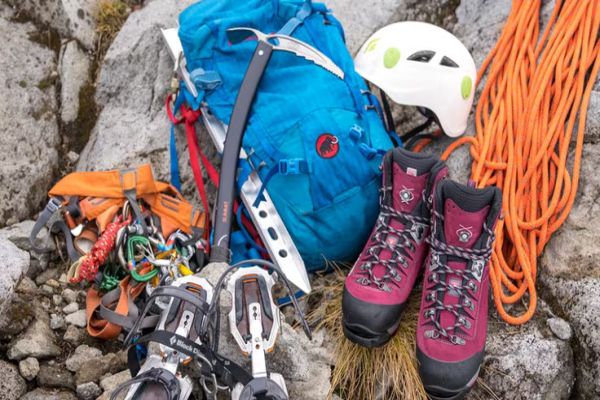
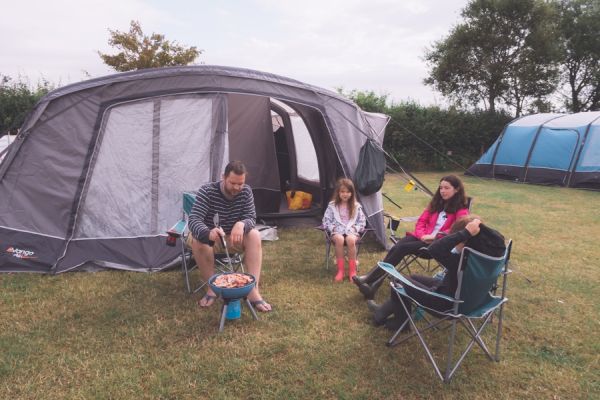

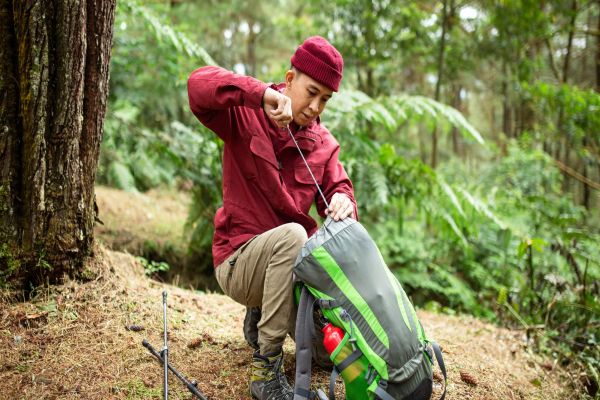
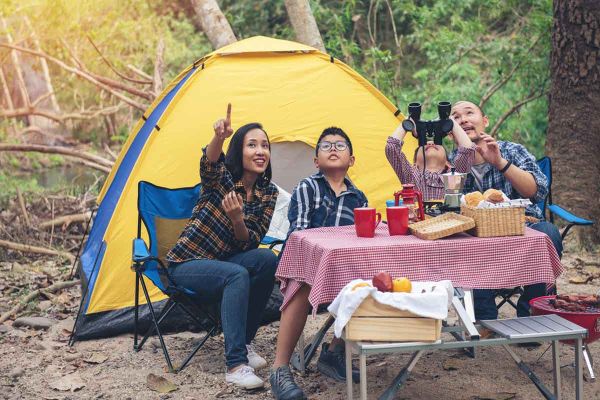
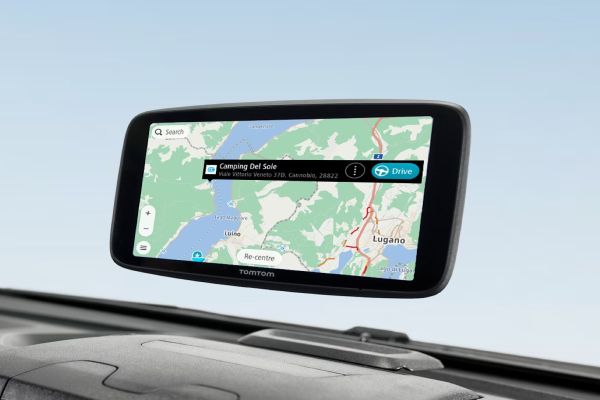
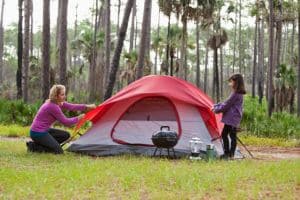
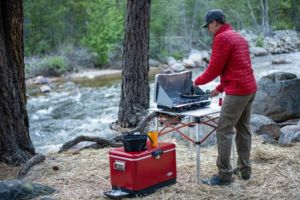
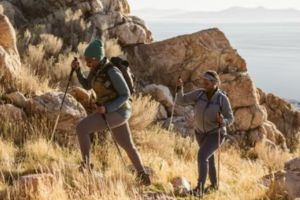
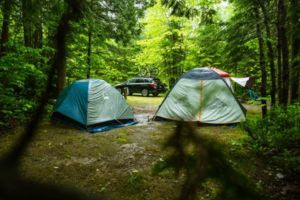
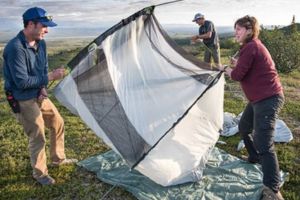
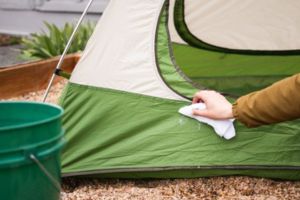
Leave A Comment